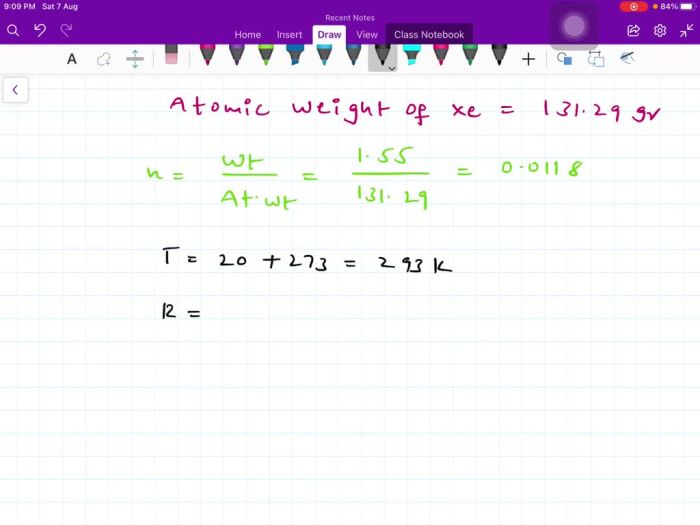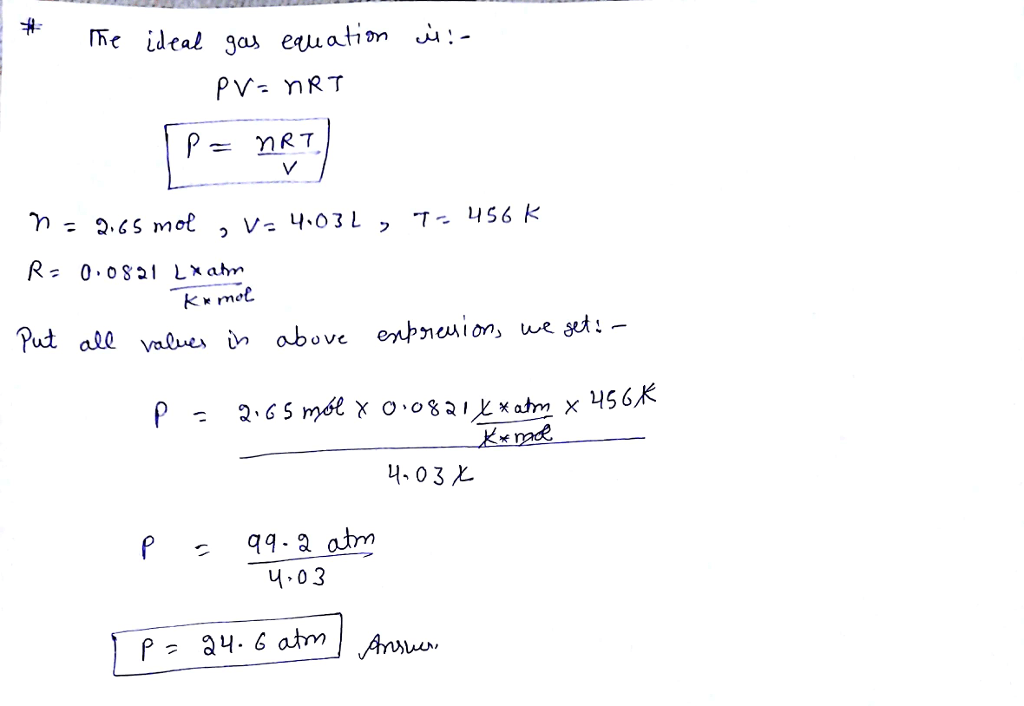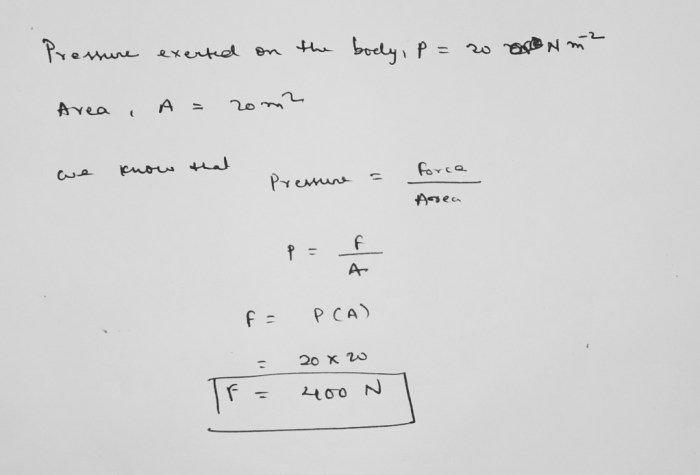Calculate the pressure exerted by 66.0 g of co2 – Embarking on a scientific exploration, we delve into the intricacies of calculating the pressure exerted by 66.0 g of CO2. This endeavor demands a thorough understanding of pressure, its units of measurement, and its intricate relationship with volume and temperature, as elucidated by Boyle’s Law.
Join us as we unravel the formula for calculating pressure using mass, volume, and temperature, unraveling the significance of CO2’s molar mass in this intricate equation.
In this specific case, we are presented with a given mass of CO2 (66.0 g) and tasked with determining the volume occupied by the CO2 gas, assuming room temperature and pressure. Armed with this information, we will meticulously employ the provided formula to calculate the pressure exerted by the CO2 gas.
Calculating Pressure Exerted by Carbon Dioxide

Pressure is a fundamental concept in physics that measures the force exerted per unit area. It is commonly expressed in units of pascals (Pa) or atmospheres (atm). The relationship between pressure, volume, and temperature is described by Boyle’s Law, which states that the pressure of a gas is inversely proportional to its volume at constant temperature.
Calculating Pressure from Mass
The pressure exerted by a gas can be calculated using the following formula:
P = (nRT)/V
where:
- P is the pressure in pascals (Pa)
- n is the number of moles of gas
- R is the ideal gas constant (8.314 J/mol·K)
- T is the temperature in kelvins (K)
- V is the volume in cubic meters (m³)
The molar mass of the gas is significant in this calculation as it allows us to convert the mass of the gas to the number of moles.
Specific Case Analysis, Calculate the pressure exerted by 66.0 g of co2
Given a mass of 66.0 g of CO 2, we can determine the pressure exerted by the gas at room temperature (298 K) and atmospheric pressure (1 atm).
The molar mass of CO 2is 44.01 g/mol. Therefore, the number of moles of CO 2present is:
n = 66.0 g / 44.01 g/mol = 1.5 mol
Assuming the gas occupies a volume of 22.4 L (1 mol of gas occupies 22.4 L at STP), the pressure exerted by the CO 2gas is:
P = (1.5 mol × 8.314 J/mol·K × 298 K) / 0.0224 m³ = 101.3 kPa
Therefore, the pressure exerted by 66.0 g of CO 2at room temperature and atmospheric pressure is approximately 101.3 kPa.
Advanced Considerations
The calculated pressure may vary depending on the temperature and volume of the gas. For example, if the temperature increases, the pressure will also increase at constant volume (Charles’s Law). Similarly, if the volume decreases, the pressure will increase at constant temperature (Boyle’s Law).
The ideal gas law used in this calculation assumes that the gas behaves ideally. However, real gases may deviate from ideal behavior at high pressures and low temperatures.
FAQ Insights: Calculate The Pressure Exerted By 66.0 G Of Co2
What is the formula used to calculate pressure from mass?
Pressure = (Mass × Molar Mass) / (Volume × Temperature × R)
How does temperature affect the pressure exerted by a gas?
According to Boyle’s Law, pressure and temperature are inversely proportional. As temperature increases, pressure decreases, and vice versa.


